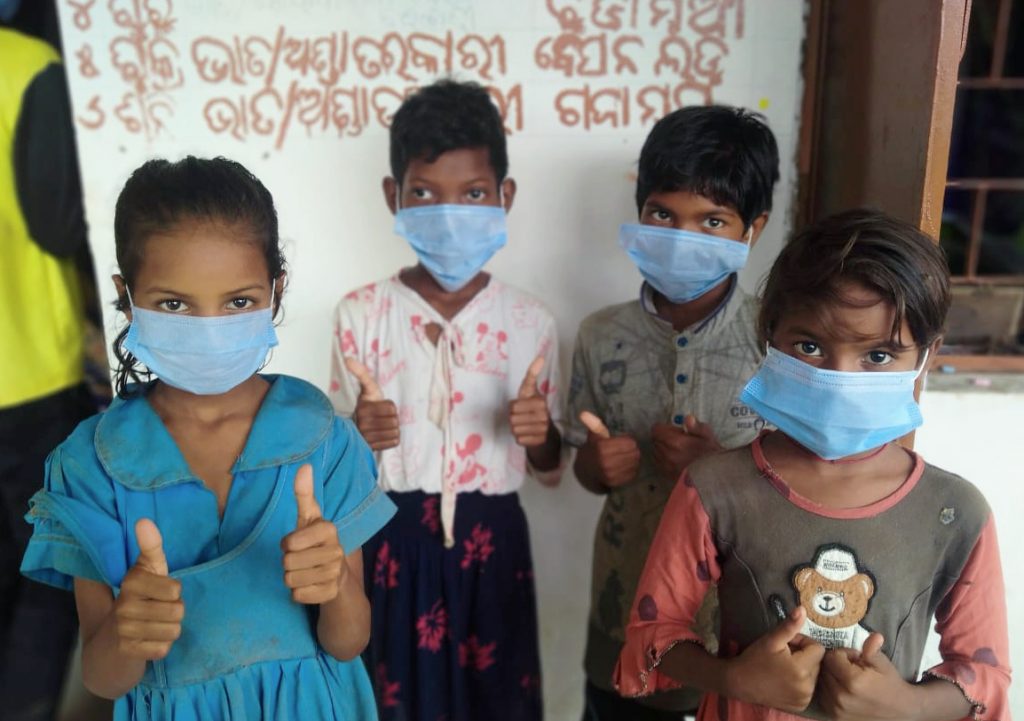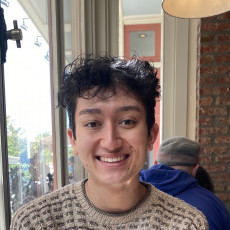The pandemic-induced instability continues to jostle the world around me. While trendlines undulate with every new variant, the virus has me cornered. My friend has COVID-19. So does my friend’s friend. My partner’s grandmother was reinfected twice in the same month. My father’s day consists of laying in a hospital bed, waiting for the next available doctor–breaking the monotony of isolating within the same four walls for the past weeks. Like riding a county fair coaster held together by shabby bolts and nails, I feel uneasy about what’s to come next. Yet, I still hold on.
I’m sure many others feel the same way. Even the most diligent of mask-wearers and vaccine-takers can test positive after one lapse in judgment, but, really, any contact is a risk. I find myself wondering, where do we go from here? With my feelings of pessimism about the state of the pandemic, I scroll through Instagram to divert my attention. One of my friends posted a Johns Hopkins infographic on the reemerging monkeypox virus. “Great,” I thought, “just what I needed.” I scroll through their page only to find a post that caught my eye titled, “How Does a Pandemic Become Endemic?” Promises of an endemic phase have been thrown around before, a promise that has seemed intangible to me, simply because there is no way to predict how the virus will mutate. I click anyway. The post stated that key characterizations of an endemic are “overall severe case rates dropping, decreasing rates of death and hospitalization, and our healthcare system not being overwhelmed.” Bottom line, a virus that is manageable, not eradicated is considered endemic.
Right now, the post continued, the best way to prevent the virus from overwhelming our healthcare system and protecting our fellow neighbors is by wearing a tight-fitting mask and getting vaccinated–still. What’s extremely important is that we achieve this globally, even in areas that are deemed “inaccessible.” After reading this Instagram infographic, I actually felt better. I started to reflect on the numerous vaccination campaigns supported by The Advocacy Project, including one I am supporting now in India. Suddenly, my feelings of hopelessness settled. What once was a day filled with anxiety over my father’s sickness became one of hope, determined for solution-based action.
I scroll further to a post titled “4 Ways to Decolonize Global Health.” For a mere social media post, this proved to be an interesting intersection of global health and international development. The post points out that often richer establishments insert themselves into poorer countries, collect data, throw money at an undeveloped area, and leave. What’s even worse is that sometimes these efforts are done for a photo op or self-serving purposes, only to leave the community remaining ill-equipped. By contrast, a decolonizing effort asks local partners what they think is important and builds the infrastructure to provide care. Throughout my time at The Advocacy Project, I’ve come to appreciate that our methods of development are practiced through a decolonization lens. We partner with local organizations, creating lifelong connections to sustainably develop communities in need.

Photo by Anil from JRP of Covid Awareness Campaign in Odisha Block (July 2022).
I reflected further on the vaccination project I am working on in India. We have partnered with a local organization called Jeevan Rekha Parishad (JRP) to provide hundreds of vaccinations to the Bondha and Kandha Tribes in Odisha Block. JRP has trained local volunteers to hold public awareness campaigns, provide masks, and administer vaccinations to these villages deemed inaccessible by the government. To garner more support for our campaign, they have enlisted dancers to perform traditional folk Pala dances, an indigenous practice that has religious and entertainment roots. This vaccine campaign is off to a strong start. After weeks of preparatory work and one day of vaccination centers open, the volunteers have already provided 146 first doses and 53 second doses to the tribal peoples of Odisha Block.
I would like to give a shoutout to our friends Dr. Manu and the local volunteers that have worked diligently to organize this effort. It has been wonderful working with you. While the course of the pandemic has been crazy, draining, and unpredictable, I feel a newfound sense of optimism. I’m going to keep in mind that despite everything thrown at us in our personal lives, there are still organizations that are combating this virus as best as they can. The fight persists.
Posted By Evan Cranmer
Posted Jul 28th, 2022


